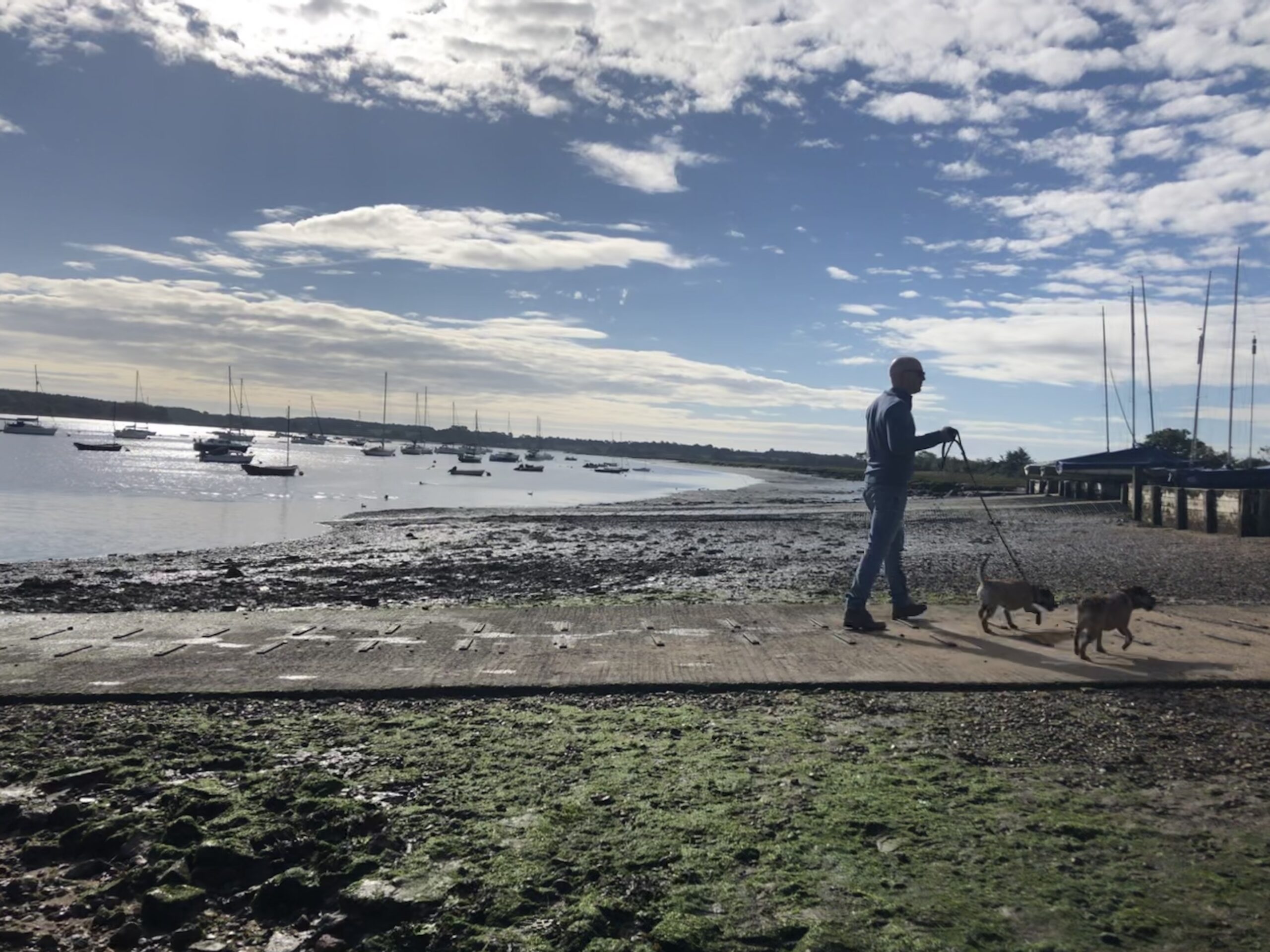I spend a lot of time talking to my clients about the benefits of making small changes to their daily habits. I will sometimes set a challenge – turning off your phone notifications is one that crops up frequently!
During a consultation I don’t always have enough time to explain in any detail why these changes can have such a positive impact on your emotional and physical health so I thought I’d take the opportunity of going into a bit more detail now.
In this blog post I’m just going to focus on two parts of something called the autonomic nervous system. The sympathetic nervous system and the parasympathetic nervous system.
The sympathetic nervous system (or fight-flight)
You might not be familiar with the term ‘sympathetic nervous system’, but you probably will have heard of the ‘fight-flight’ response. The fight-flight response is created by the sympathetic nervous system.
It is the response that your brain sets into motion when it tells your body to get ready to deal with a threat. Really I should talk about the fight-flight-freeze response – where we are ready to fight whatever the threat is, run away to safety or freeze like a rabbit in the headlights.
However, as I don’t want to make this too long or in-depth I’ll just refer to it as fight-flight. If you’re interested in finding out a bit more about the fight-flight-freeze response take a look at this article called “Recognise your flight or flight (or freeze) responses”. It gives a really accessible explanation and also some tips on how to take back control when you are in this situation.
The parasympathetic nervous system (or rest & digest)
The parasympathetic nervous system creates a state of rest & digest.
It’s the opposite of the fight-flight response and is all about being calm and relaxed – allowing your body to ‘rest’ and look after itself by allowing things like the digestive system and the immune system to function properly.
It is not as well known as the fight-flight response which is a shame, as this is the one that is so important to our long-term emotional and physical health.
So if you remember one thing from reading this post please let it be the importance of being in the rest & digest state as much of the time as possible.
Introducing adrenaline the fight-flight hormone
Or the initial stage of the fight-flight response.
Picture this.
You’re happily going about your day when you become aware of a threat to your safety. When humans first existed this threat might have been a wild animal attack but now it could be something like a car suddenly pulling out in front of you. The next bit happens in the blink of an eye.
It’s a complicated process but here are some of the highlights.
Your senses detect danger.
The part of your brain that helps you to process emotions (your amygdala) sends a distress message to the ‘command centre’ of your brain (your hypothalamus).
Your hypothalamus then initiates the following domino-effect of responses:
- it alerts your adrenal glands to the potential threat and they release the hormone adrenaline into your blood stream;
- the adrenaline circulates around your body and triggers a number of physiological changes;
- your heart beats faster pushing more blood to the muscles, heart and other vital organs so they can act quickly
- your blood pressure and heart rate increase
- the narrow airways to your lungs expand allowing more oxygen into your lungs more quickly
- the extra oxygen is sent to your brain so you become more alert and your senses get sharper
- glucose and fat is released into your blood stream providing additional energy to all parts of your body to get you ready to fight or flee.
Introducing cortisol the stress hormone
Or the second stage of the fight-flight response.
When the surge of adrenaline from the initial stage of the fight-flight response has subsided your body decides if there is still a threat.
If there is, something called the HPA axis releases cortisol into your blood stream to keep it in the fight-flight state.
HPA stands for Hypothalamus, Pituitary Gland and Adrenal Glands. These are the parts of your body that are involved in another domino-effect message chain which results in the adrenal glands releasing the cortisol.
Cortisol continues the work of the adrenaline to make sure that you are still ready to react to the threat.
Introducing the rest and digest phase
The third stage of the process.
When the perceived threat has passed, the parasympathetic nervous system takes over. It lets the body know that it doesn’t need more cortisol to be released thus allowing the body to return to the rest & digest stage.
Amongst other things it reduces your breathing rate, it releases digestive enzymes which are essential to digest your food properly (this was stopped during the fight-flight response), the airways to your lungs become narrow again, and your muscles relax.
Why does this matter to me?
You might be thinking how clever your body is at having these systems in place to protect you. Or perhaps you’re just thinking “what’s this got to do with my lifestyle?”.
Your brain just wants to keep you safe and as a result it is often very cautious. It sees lots of the things that are common place in modern society as potential threats.
Your phone pings with a new notification. Threat.
You’re worried about an interview or an exam. Threat.
You’re getting close to a deadline and you don’t know if you can get everything done in time. Threat.
It’s the first day at your new job or school. Threat.
You get the picture.
The trouble is that with every perceived threat comes the fight-flight response.
So if you’ve constantly got too many things on your to-do list or you receive notifications from emails, messages and social media all day, your body is constantly providing a supply of cortisol to help it deal with all these ‘threats’.
Why is that a problem?
First off, for most of us it’s simply not a nice feeling when your body puts you in the fight-flight state.
Your heart is pumping, you might feel sick, you start to panic, you might start sweating and you might not think straight.
Emotional problems
This can be the start of problems like anxiety. Anxiety is a very personal thing, but put very simplistically it can happen something like this:
Your body starts to perceive everything that is just a bit of a challenge as a threat. You start to anticipate this horrible feeling and naturally you don’t want to put yourself in that situation again. Your brain doesn’t want you to put yourself in danger so it produces these responses to warn you of the dangers.
For some people the challenge could be going out and getting on the bus, for others it could be putting themselves forward for a new opportunity at work. Even just leaving the house in the morning can be a huge challenge for some people.
Physical problems
Here are just a few examples:
If there are constant surges in adrenaline for a prolonged period of time this can increase blood pressure and put stress on the heart and arteries. This in turn can increase the risk of heart attacks and strokes.
The effect of the cortisol on your body can interfere in other hormonal responses in your body which can lead to weight gain and problems with periods or getting (and staying) pregnant.
Cortisol also affects sleep as it is part of the circardian rhythm. This is the way your body regulates hormones such as cortisol and melatonin so you feel tired in the evening and alert in the day.
Cortisol levels should be higher during the day and then gradually reduce towards the evening. So every time you look at your phone or hear notifications during the evening you are causing peaks in your cortisol levels which will disturb your natural sleep cycle.
Simple ways you can help
Managing your lifestyle is key.
There are lots of small steps you can take to help reduce the number of perceived threats for your brain to deal with but there is one thing you can do right now to encourage your body back into the rest & digest state and it’s really simple.
Breathe.
Proper mindful ‘belly’ breathing.
There are lots of apps, websites and books that can teach you about this but here are a few tips to get you started:
Close your eyes.
Put one hand on your chest and the other hand on your tummy.
Breathe in deeply through your nose.
Try and count slowly to 4 and visualise filling the whole of your lungs.
The hand on your chest should stay still but you should feel the hand on your tummy lift up.
Breathe out through your nose, trying to breathe out for the same count as you breathed in.
Use your tummy muscles to force out all the air from your lungs and feel your hand lower.
Before your next breath in, try and pause for a few seconds, or as long as feels comfortable.
Repeat.
You will gradually be able to take longer, deeper breathes and at the same time feel your body relaxing more and more with each out breath.
If your mind still wanders, with your eyes still closed, focus on the point between your eye brows while you continue breathing.
Give it a go, whenever you start to feel stressed and before you try and get to sleep at night.
You might like to read this related post which has some other ideas of how to get yourself into a place of rest and digest.
Interested in finding out more?
If you are interested in improving your own health but you’re not sure where to start, why not book in a free Discovery Call?
You can tell me what you’re struggling with and I’ll let you know if I think I can help.
Take care,
Sarah x



